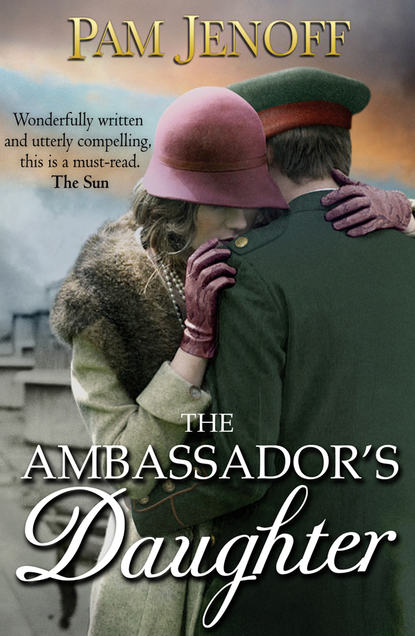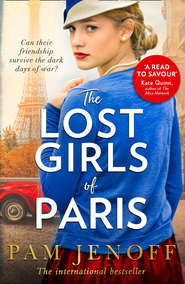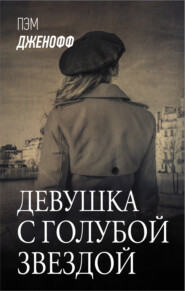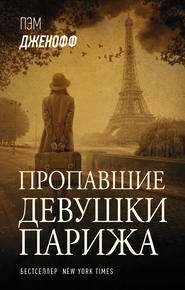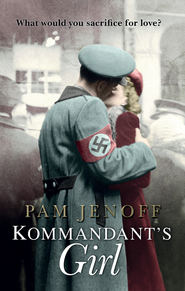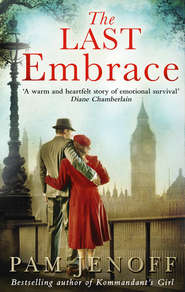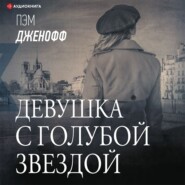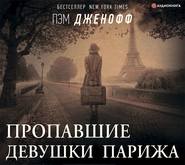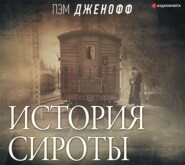По всем вопросам обращайтесь на: info@litportal.ru
(©) 2003-2024.
✖
The Ambassador's Daughter
Настройки чтения
Размер шрифта
Высота строк
Поля
“That I’ve read in the press. But what is it like on the street?”
He pauses, struggling to fashion a description beyond the political. “Strikes, protests, rioting. Neighbors who lived in peace their whole lives taking sides and fighting one another. It’s anarchy. You will find the city much changed. Immigrants have poured in by the thousands from the east, living in these cramped apartments, entire families in a single room. And there’s no food, not for them and not for the people with money to buy it. The war is over, yet women and children continue to starve because of the blockade.” His tone is harsh.
“Oh!” I bring my hand to my mouth. I hadn’t understood it until then. Removed from the continent, safely tucked away in England, war seemed a remote thing, fought in the trenches by men who were strong enough to withstand it. Maybe that’s why Papa accepted the appointment in England. He must have sensed the horror of what was to come and wanted to spare me. While I was bemoaning the rainy British weather and lack of things to do, people back home were dying from hunger and cold. I shudder. “Your description of the chaos makes it sound like Russia.”
“Perhaps, but I don’t think it’s going to go that way. The SDP is so divided within that they can’t organize to get anything done, much less form an effective government. The right is taking advantage of that, capitalizing on all of the anger—they’ve managed to convince lots of people who weren’t there that the new government was responsible for our ultimate defeat in the war. It’s not true, of course, but people back home don’t know that and it makes for an attractive, simple story. So the right has some popular appeal but they don’t have the numbers. Things will settle somewhere in the middle. It’s terribly dissatisfying.”
“Maybe.” To me, there is a kind of comfort in the inertia, a safeguard against any one extreme taking too much.
He picks up one of the cups of tea from the low table and walks over. Our fingers brush as he hands it to me. “Forgive my bluntness. All of the time on the ship has made me forget how to speak to a lady properly.”
“Not at all. I much prefer plain speech.” I take a sip of tea, then set the cup down well away from the papers. “Captain Richwalder …”
“Georg,” he interjects. “If you don’t mind.”
“Georg,” I say, the name unfamiliar and awkward on my tongue. “What will you do after the conference?”
He retreats to his chair, stretches his legs out before him. “Return to the battleship, I suppose, or a different craft if that was needed.”
“You haven’t seen enough of war?”
“There is no peace without war,” Georg says. “There’s a concept in Asia called yin-yang, two opposite halves of the whole. War and peace are just that. And soldiers are needed. Without the military, there would be no order.”
I want to protest that man’s nature would allow him to coexist peacefully, but I know that he is right. “I mean, what would you do if you couldn’t go back to a battleship?” I ask, shifting topics slightly.
Georg cocks his head, as though he had not before contemplated the question. He had always assumed that there would be a navy and a place for him in it.
“Would you join the new government?”
He shakes his head. “I’ve got no patience for bureaucracy, and the capital makes me feel as though the walls and buildings are closing in around me. No, I’d probably return to Hamburg and oversee the family shipping business. If I can’t be on the sea, at least I could be near it.”
“Your family ships goods?”
“No, we build ships.” I had not realized until now that Georg is wealthy. I’ve always been oblivious to matters of money and class—too oblivious, Tante Celia remarked once. But with his uniform and haircut, it would have been impossible to tell. “There isn’t much of a ‘we’ anymore, unfortunately. My parents both died some time ago, and my brother Peter was killed at the Battle of Jutland.”
“How terrible.”
“He was on a ship not far from mine that was torpedoed. I saw him go down and I could do nothing to stop it.” His recounting is factual and precise, but his eyes cloud over at the memory. “Eight ships and nine thousand men at that battle alone. We joined the navy together, but it was really more his dream to be a great naval officer. I just went along.”
Now Georg had picked up the mantle, fulfilling the career his brother could never have. “Tell me more about Hamburg,” I say, trying to gently steer the subject away from war. The sadness on his normally strong face is somehow unbearable.
But he will not be dissuaded. “I think Peter wanted to escape to the sea. You see, our parents were terribly strict and they had such high expectations.”
“Yes, of course.” I nod.
“I have a sister, too. My parents had plans for her to marry someone rich and fairly dreadful, so she ran away to Austria. She lives in a cottage in the Obersalzberg with her husband, someone she actually wanted, cared for, and they have about a dozen children. I see her occasionally, send money. They have a modest lifestyle but it’s very happy.”
“And noisy, I’m sure, with all of those children,” I remark.
“I don’t mind,” he replies, surprising me. Quiet and order seem better suited to him. “I would have liked children.”
“You talk like you’re eighty!” I exclaim. “You can still have them.”
“I’m twenty-five,” Georg replies. “I will be twenty-six, tomorrow, in fact.” There is something grave and imposing about his demeanor that makes him appear more than just a few years older.
“There’s still plenty of time.” Though it is not at all hot in the room, my skin feels suddenly moist.
“I suppose. And you?”
“I do want children,” I reply with more certainty than I’d planned. It was not something I’d thought about on a conscious level until now.
“No, I was asking about your family. Are there many of you?”
“Oh.” For the second time in an hour, I feel myself blush. “A small family, also. Just Papa and me.” I do not count Tante Celia or our other extended relations. “My mother died of flu when I was younger.”
“I’m sorry.” His voice is full with the empathy of shared loss.
“Growing up an only child, Papa working all of the time, was sometimes a lonely existence. That’s why I’d like to have children. How many, I don’t know, but definitely more than one.” I feel myself talking too fast and saying too much. I have not felt this comfortable speaking with anyone since Krysia. “With siblings you always have each other …” I stop, realizing my error. Georg had his brother until he died at war, in front of his very eyes.
Вы ознакомились с фрагментом книги.
Приобретайте полный текст книги у нашего партнера:
Приобретайте полный текст книги у нашего партнера:





